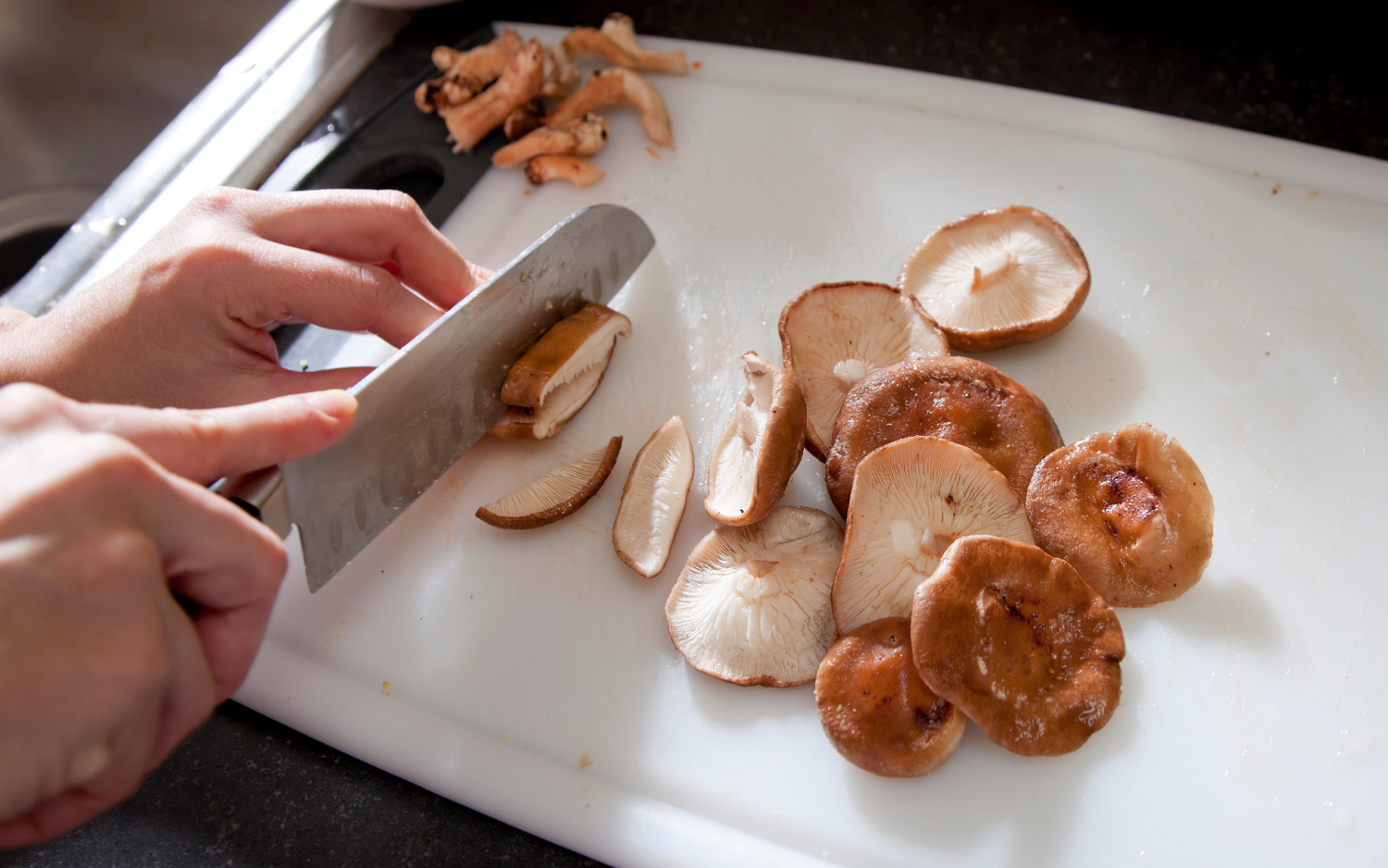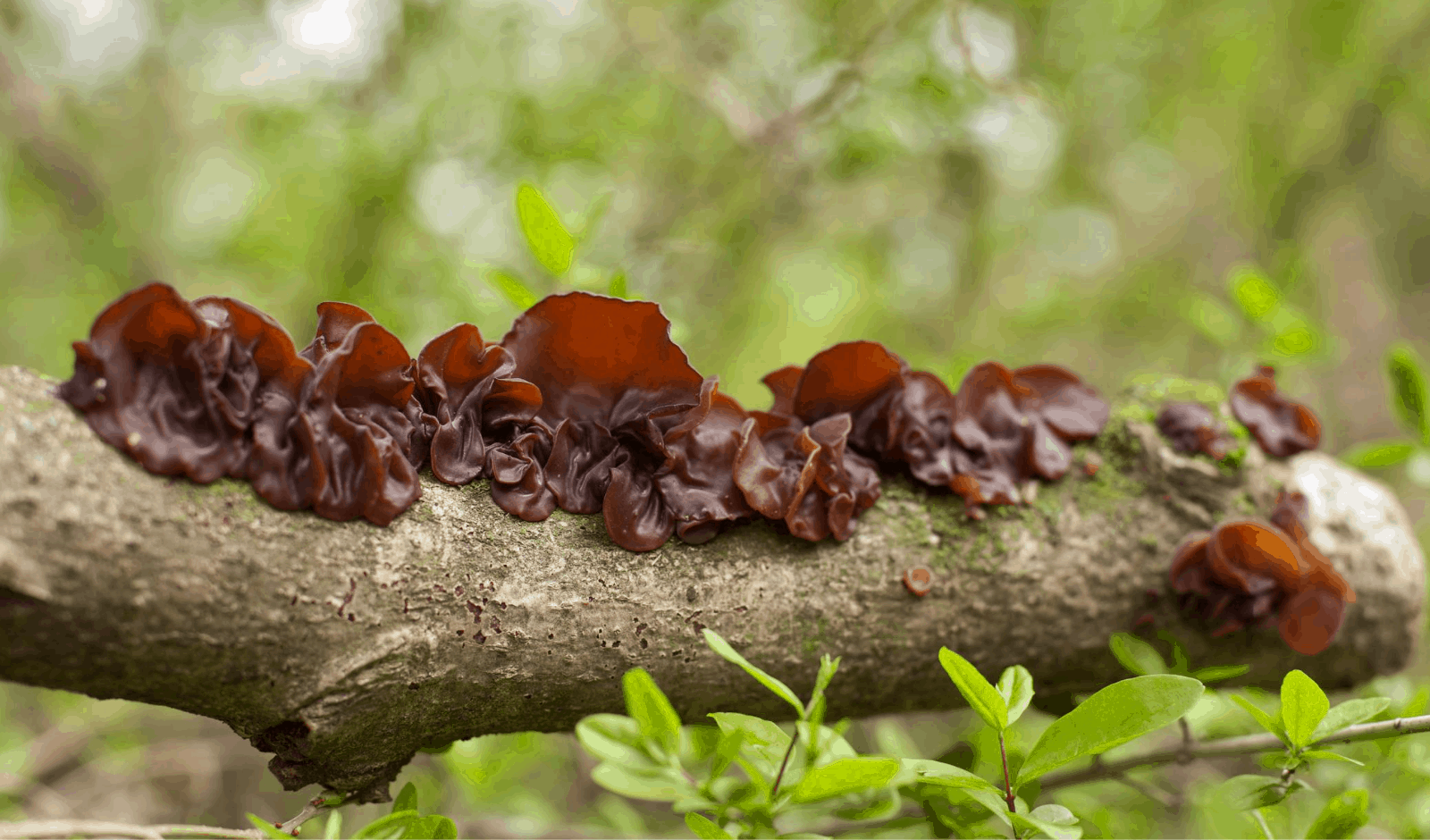They're low in calories and high in nutritional value.
They're free from fat and cholesterol.
They're always in season and grow year round.
They taste delicious and come in bountiful varieties.
Yes, mushrooms are phenomenal fungi with many health benefits. It's no surprise then that adding more mushrooms to your diet is a smart and easy way to enjoy a healthier lifestyle.
But before we go any further, it's important to explain what we mean by a mushroom diet. There is a lot of misleading information online about what it is and how it can not only make you lose weight quickly, but how it can make you lose body fat in all the right places.

Mushroom Diet Explained
When we talk about a mushroom diet, this doesn't mean only eating mushrooms. That would be unhealthy and unwise. A mushroom diet simply means regularly replacing meals that would normally include meat with mushrooms instead. If replacing meat entirely seems a bit extreme, you could also use a "blendatarian" approach, mixing in a little meat with mushrooms so that overall meat content is reduced. This should not be confused with the M-Plan diet made popular by pop star Katy Perry back in 2013. That diet claims that eating mushrooms for 14 days can magically target fat loss in specific problem areas, resulting in tinier waistlines, slimmer thighs, and thinner upper arms while not losing any weight in the bust area. Of course, such claims are false. Any diet that sounds too good to be true or promises immediate weight loss is one that should not be trusted.Mushrooms VS Meat
While you should always consult your doctor before starting any new diet plan, using mushrooms as a meat substitute can be enormously beneficial to your health. And it's not just hearsay. Published scientific studies show that those who followed a "mushroom diet" and replaced meat with mushrooms for one year experienced a significant loss in total body weight, BMI (body mass index), and waist circumference compared with those who ate a standard meat diet. What's more, those in the clinical trials not only maintained their weight loss after a year, but they also had improved cholesterol and blood pressure levels. Research also shows that using mushrooms as a meat substitute is effective because they offer high nutritional value as well as the same level of satiation as you do when eating meat. If mushrooms didn't offer a sense of fullness, a mushroom diet would not be very sustainable as a long-term lifestyle change, now would it? Indeed, any eating plan that lacks nutrients or leaves you hungry cannot be sustained in the long run. The standard American diet is high in meat and processed foods, but mushrooms are filling, healthy, and low-calorie foods that don't come with the same negative effects that a meat-centric diet brings — saturated fats, high cholesterol, and exposure to hormones and antibiotics (meat treated with hormones), all of which are known to increase risk of heart disease, diabetes, stroke, and cancer. Substituting mushrooms for red meat is a useful strategy for enhancing weight loss, weight maintenance, and overall health.
Benefits of a Mushroom Diet
Mushrooms are loaded with B vitamins and zinc, which help break down stored body fat. They are also full of antioxidants that fight cancer and numerous other diseases, not to mention provide anti-aging benefits.More benefits of eating mushrooms:
- Fewer calories than eating meat yet offers a comparable level of hunger satisfaction
- Can help reduce risk of heart disease, obesity, and mild cognitive impairment
- Assists with weight loss goals at a steady, healthy pace
- Contains prebiotics that promote digestion and overall gut health
- Important source of vitamin D to maintain healthy bones
- Contributes to proper function of the immune system
- Good source of protein and fiber particularly for plant-based diets
Which Mushrooms Are Best?
While any variety of edible mushrooms offers health benefits, some mushrooms have more advantages than others. According to researchers, mushrooms — particularly porcini mushrooms — have high amounts of the antioxidants known as ergothioneine and glutathione, which fight off free radicals associated with many aging-associated health conditions such as cancer, heart disease, and Alzheimer's. Even though common white mushrooms have less of these antioxidants, they still have higher amounts than most other foods.Button Mushrooms
By far the most popular mushroom in the United States, white button mushrooms (less commonly known as agaricus mushrooms) account for 90 percent of the total mushrooms consumed. Although they don't have as high a concentration of certain antioxidants found in porcini mushrooms or other varieties, they do contain high amounts of copper, which is essential for blood cell production and heart health. Studies show that button mushrooms also enhance the body's immune system and provide a host of nutrients including vitamins C, D and B as well as selenium, iron, magnesium, phosphorous, potassium, and zinc.Portobello Mushrooms
Also known as portabella mushrooms, these big brown mushrooms are really just fully mature cremini mushrooms. Portobellos have a significant amount of antioxidants and their chewy, meat-like texture make them an ideal meat alternative. They also contain CLA (conjugated linoleic acid), which has been shown to have cancer-preventing properties. Portobello mushrooms also have potassium, which is necessary for hydration, and iron for healthy circulation. Like all mushrooms, they are low in carbs but still provide a good amount of fiber.Other Mushroom Types
You can find white button mushrooms, cremini mushrooms, and meaty portabello mushrooms in most grocery stores, but as the old saying goes, variety is the spice of life. Don't be afraid to try more unusual varieties such as chanterelle, oyster, king trumpet, maitake, and shiitake mushrooms. While these exotic types typically cost more money, most health food stores and farmers' markets offer them in loose bins, so you can select small, customized quantities that suit your budget. When you incorporate different varieties of mushrooms into your diet, it gives you the chance to maximize their benefits and enjoy their unique tastes and textures.


